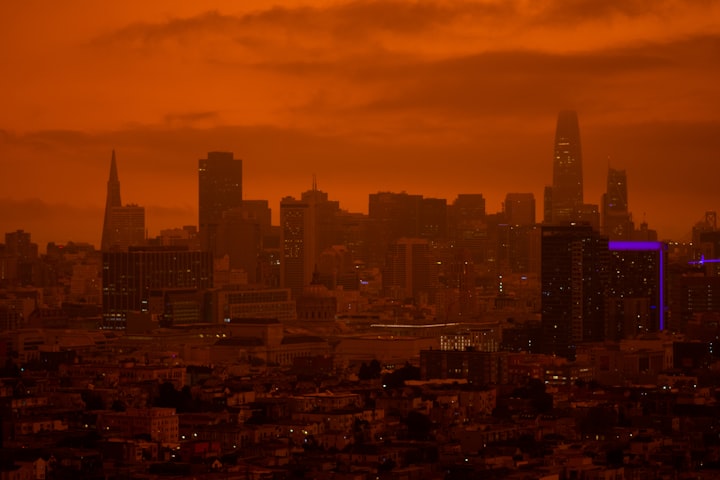What Happened To The Quick Bounce Back That Was Predicted
A sudden stop has happened but it does not mean a sudden start will follow.

In a way, the UK should have been the best-prepared country for the destructive force of Covid-19 on the economy. Throughout 2019 hardly a day went past without someone reminding us of the dangers of a cliff-edge Brexit.
Not even the most negative 'remainer' would have predicted what has happened since Britain was put into lockdown on 23 March. While most of the attention has been directed, rightly, on the medical crisis, the economy has collapsed.
6 million workers had been furloughed
According to HM Revenue and Customs figures, under the government’s wage subsidy scheme, more than 6 million workers had been furloughed That means that a quarter of all British employees are now paid by the government.
Cars sales to private consumers in April 2019 were 67,873. Sales last month were 871, a drop of 99%. The Bank of England anticipates the economy to contract by 14% in 2020. You have to go back three centuries to top that.
Almost every sector of the economy, except food and drink and the public sector, has been hit. Companies have been mothballed; estate agencies have stopped selling houses; pubs, restaurants and hotels have closed; high streets footfall plumbed; universities and schools are empty.
Social distancing has also hit every part of the UK. Parts of Britain with relatively few cases of Covid-19 tend to be among the most beautiful and bring significant numbers of tourists. For those working in the hospitality industry in Cornwall, the Lake District and the Scottish Highlands, it is going to be a stressful summer.
In the past, recessions were concentrated in one sector of the economy. In early 1980s, it was manufacturing; in the 1990s it was housing, and in 2008 it was financial. This time it is all at once, that is why the current fall is, by far, the worst of recent history.
National production is anticipated to drop by a third between the first and second quarters of 2020, if the lockdown is kept until June.
If, as predicted, there is a modest relaxation of the rules at the end of May, the reduction may be the 25% reduction being pencilled in by the Bank. In 2008-09, the peak to trough contraction in the economy, so far the most severe recession since WWII, was approximately 6%.
The good news, if the was any, it is that the worst should now be over. The evidences of traffic congestion and job listings suggests that the economy hit bottom in the middle of last month. April was brutal.
There is no sign that the economy is going to bounce-back quickly.
Most people can see that there is a bit more going on: More cars on the roads; construction sites that have reopened; some restaurants doing takeaways. But there is going to be no quick bounce-back that some were envisaging in March.
The possibility of a second wave means that the lockdown will only be lifted slowly, and that will be too slow for thousands of businesses that are burning their capital and will go bust within months.
Some of the largest sectors of the economy, including hospitality, retail, travel and transports, are going to be affected for a long time.
How can social distancing be compatible with attending a Premier League football match or a visit to packed theatres in London’s West End? It is hard to see.
What’s more, the lockdown is going to affect consumer behaviour.
The government has spent the past weeks telling people of the risks of leaving their homes, and it will be a while before persuading them it is safe to go to a restaurant for a meal, even if the tables are two metres apart. A quick bounce-back would expect consumers to spend all the cash they have not used for the past two months, and that is unlikely.
Since the end of March, the government has been injecting large amounts of money into the economy. Interest rates were cut; money created, spending on the NHS rose, wages subsidised, incomes of the self-employed topped up, loans to businesses underwritten.
The speed the package was put together indicates that it is far from perfect. Still, two things are clear: without action by the state, the UK unemployment rate would have been of 15% rather than 9%, the Bank is projecting for this year; one way or another, the cost would have to be met.
Rishi Sunak is worried about how much he has to borrow to subsidise 80% of salaries up to £2,500 a month, which the Office for Budget Responsibility estimates a monthly cost of £14bn. The chancellor says the UK can’t indefinitely spend as much each month on subsidies as on the NHS.
These are potent drugs the Treasury has been giving and weaning companies off them will not be easy.
Sunak will announce plans for the phase-two or out of wage subsidies next week but assume he says that starting from July the government will only pay 60% of the salaries for furloughed workers and that the cap, from £2,500 a month will be reduced to £2,000.
Some businesses will enjoy a sugar rush of spending as the public celebrates the end of lockdown, but many others will not and will start redundancy process those who were previously furloughed. Those that remain on the top-up plan at the reduced rate will undergo a pay cut, reducing their spending power.
As the welfare queues inevitably begin to grow, even those fortunate enough to have avoided a cut in salaries will get worried. They will be saving more and spending less for fear of losing their jobs too.
All of that means that the government needs to move with extreme care.
One of the lessons from the last recession was that austerity measures were introduced too soon and growth cut off, and this time the risks are much higher. Whether or not we will have a second wave, the likelihood of a second wave of had economic times beginning in the autumn is definitely high.
The psychological effect of Covid-19 on consumer behaviour has meant that a V-shaped recession was never likely for the UK.
Now, we need to avoid a great depression.
About the Creator
Anton Black
I write about politics, society and the city where I live: London in the UK.






Comments
There are no comments for this story
Be the first to respond and start the conversation.